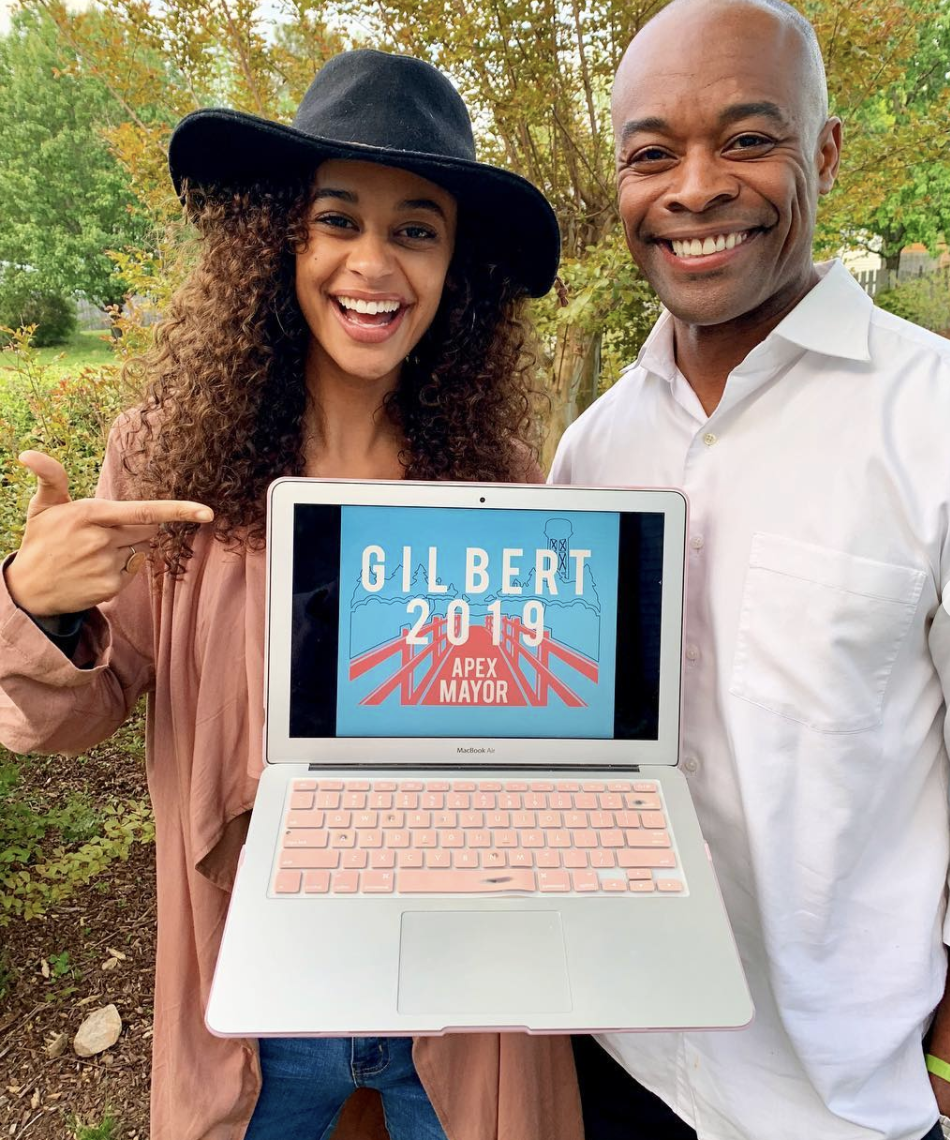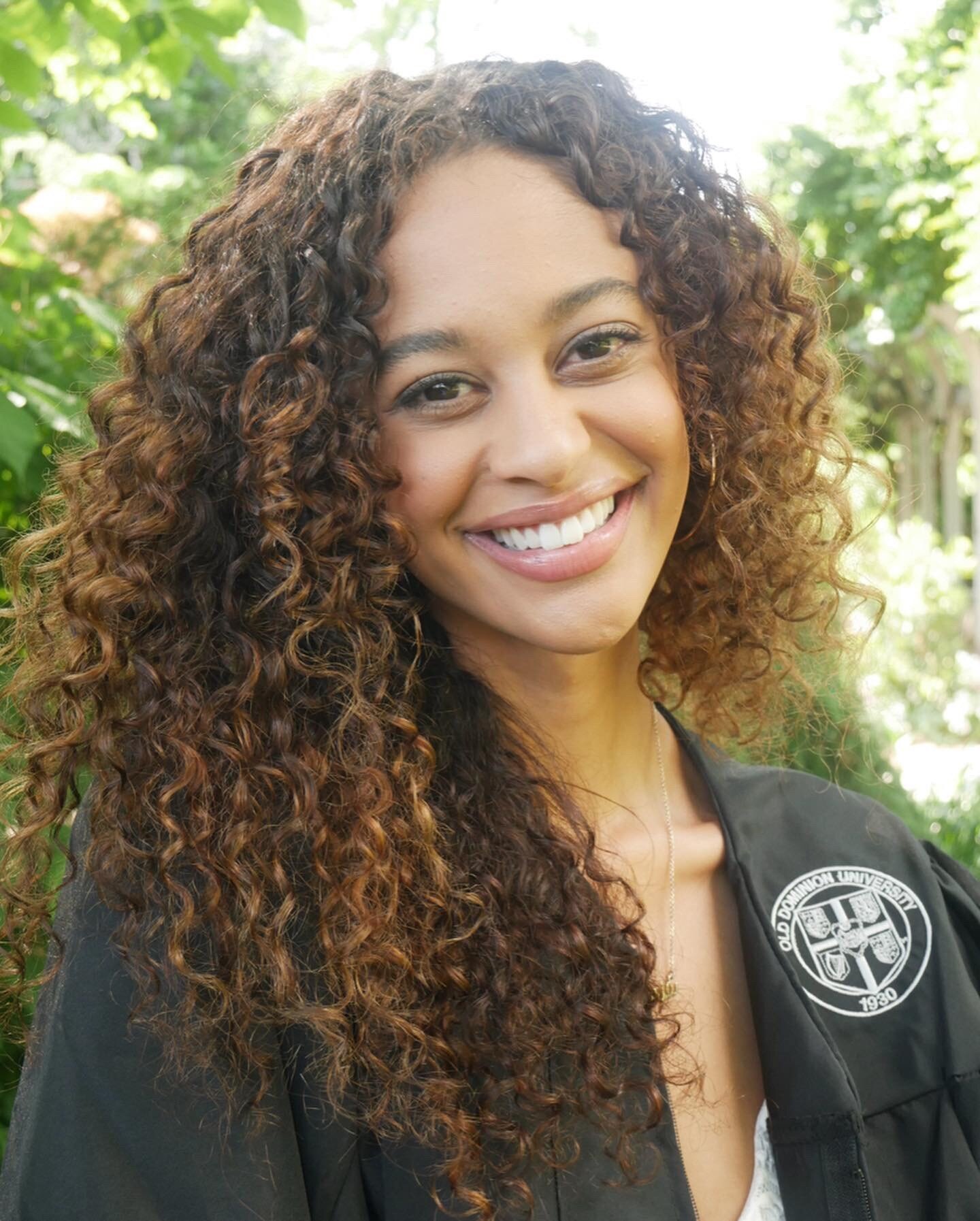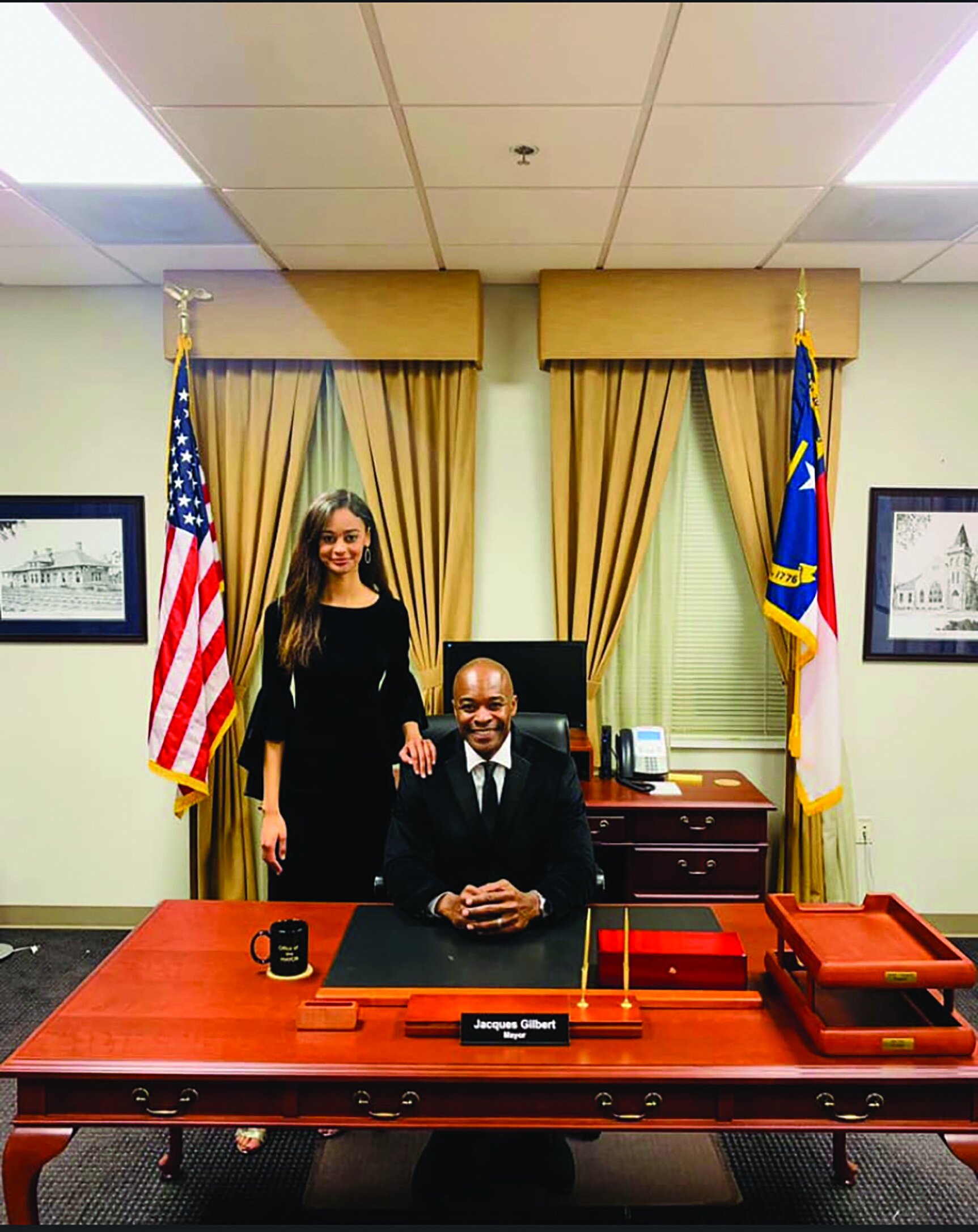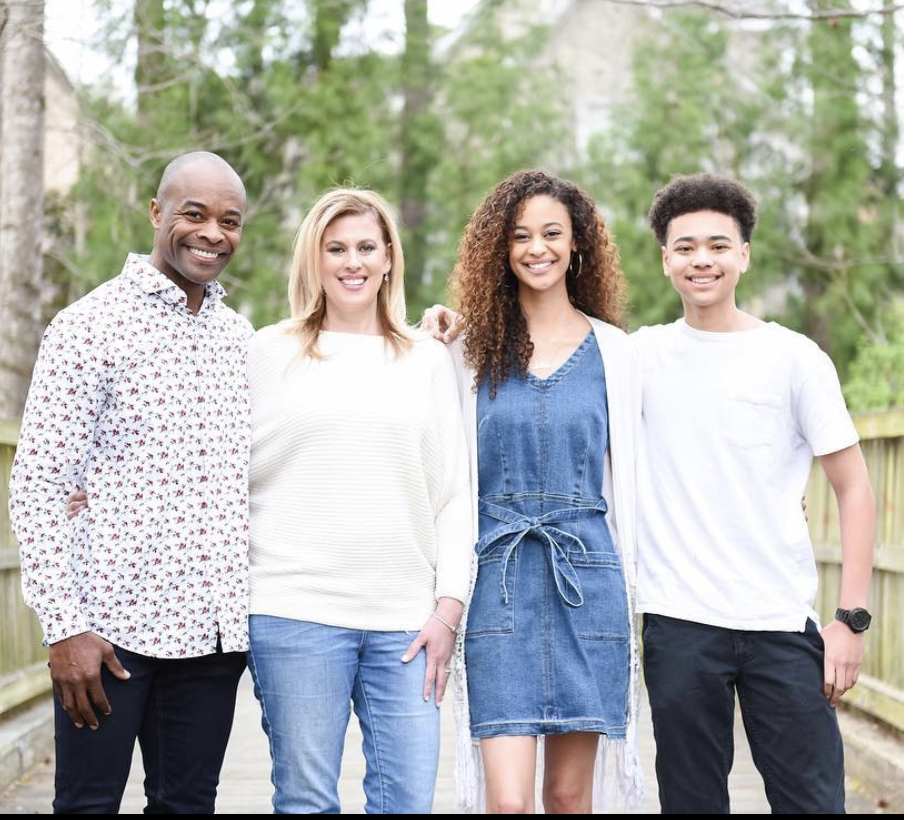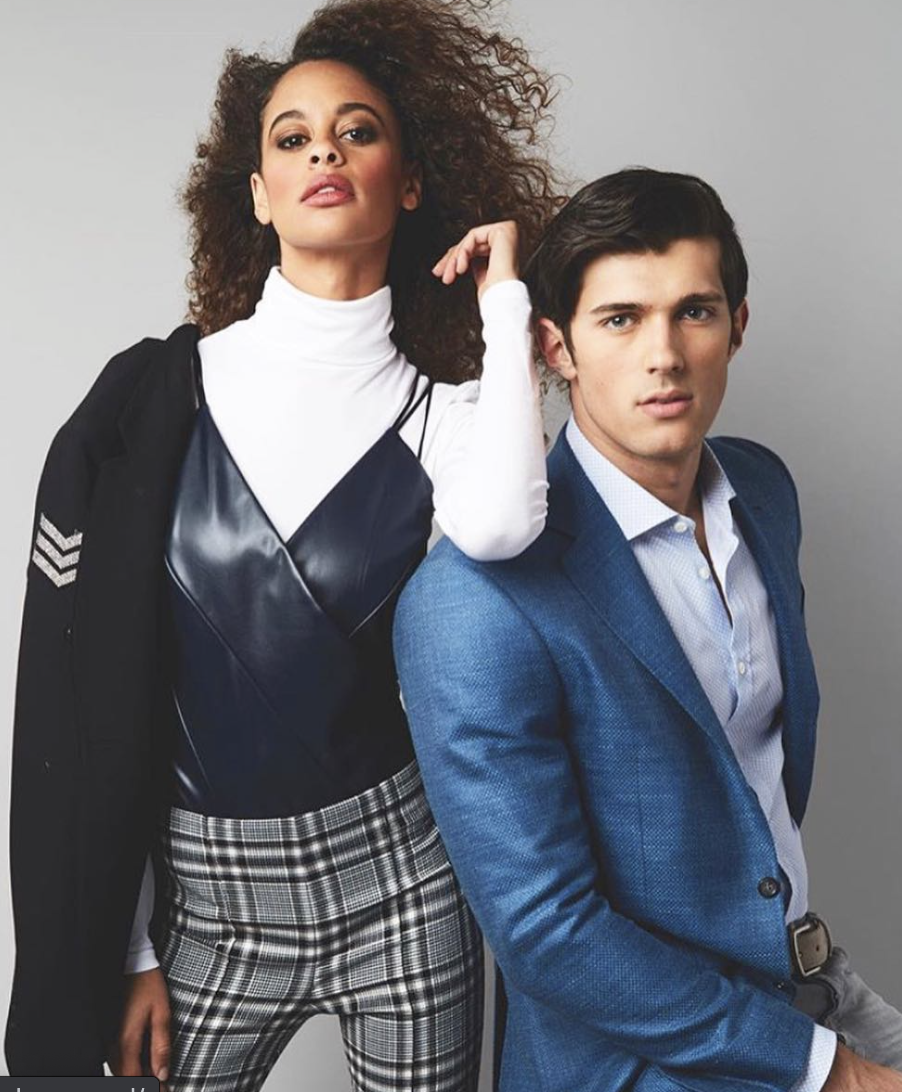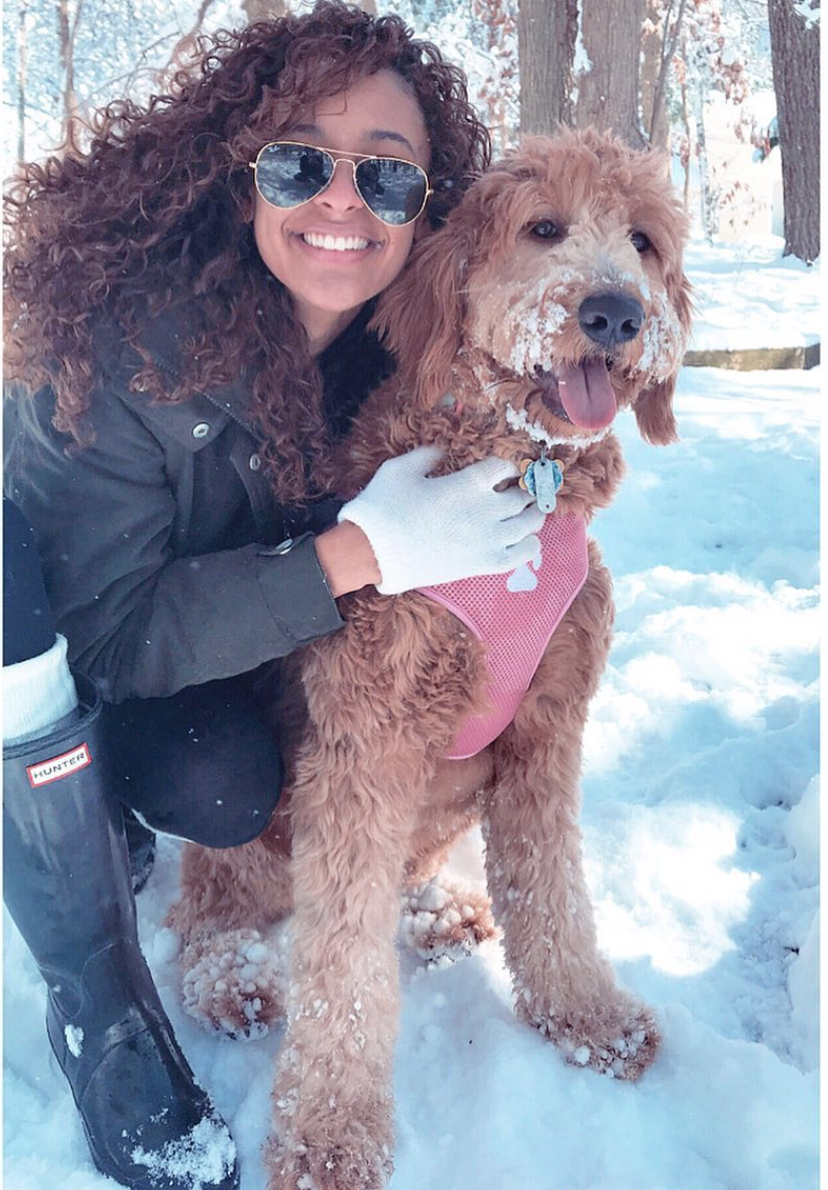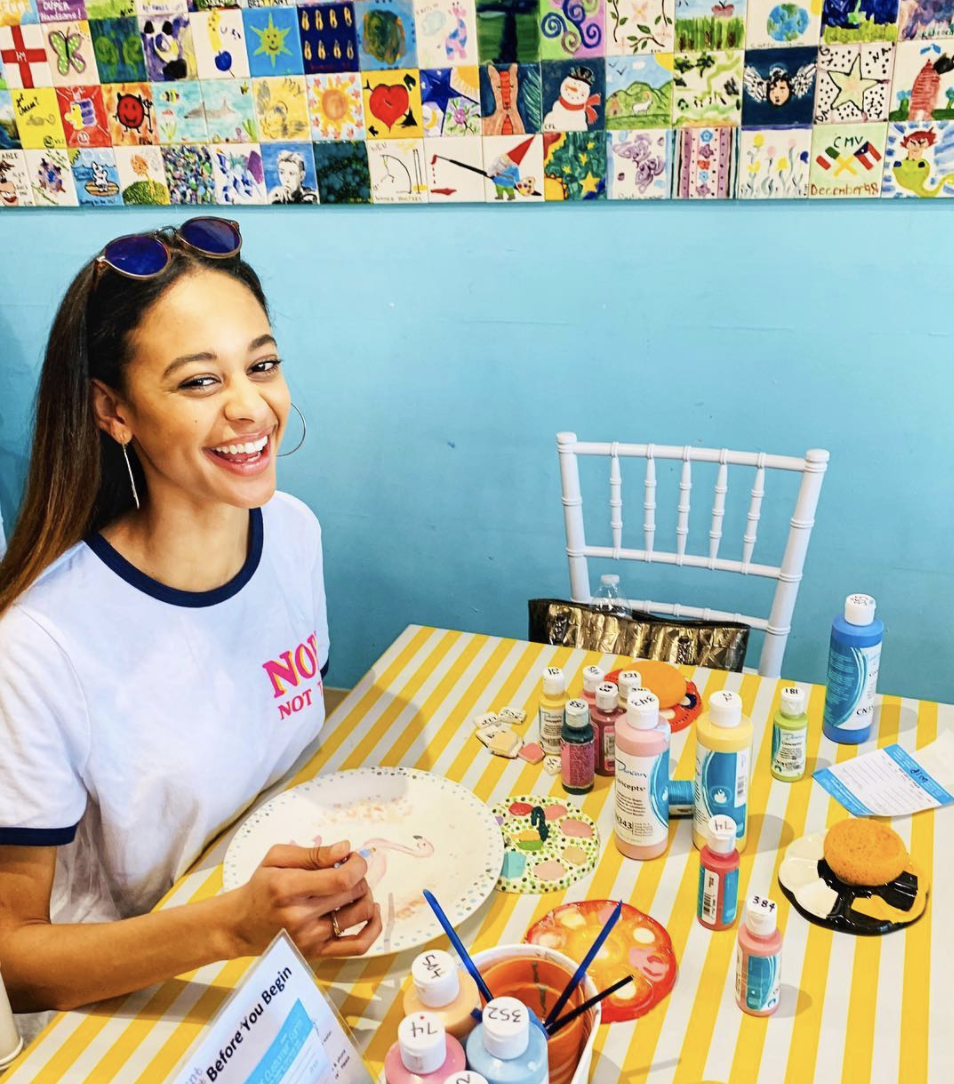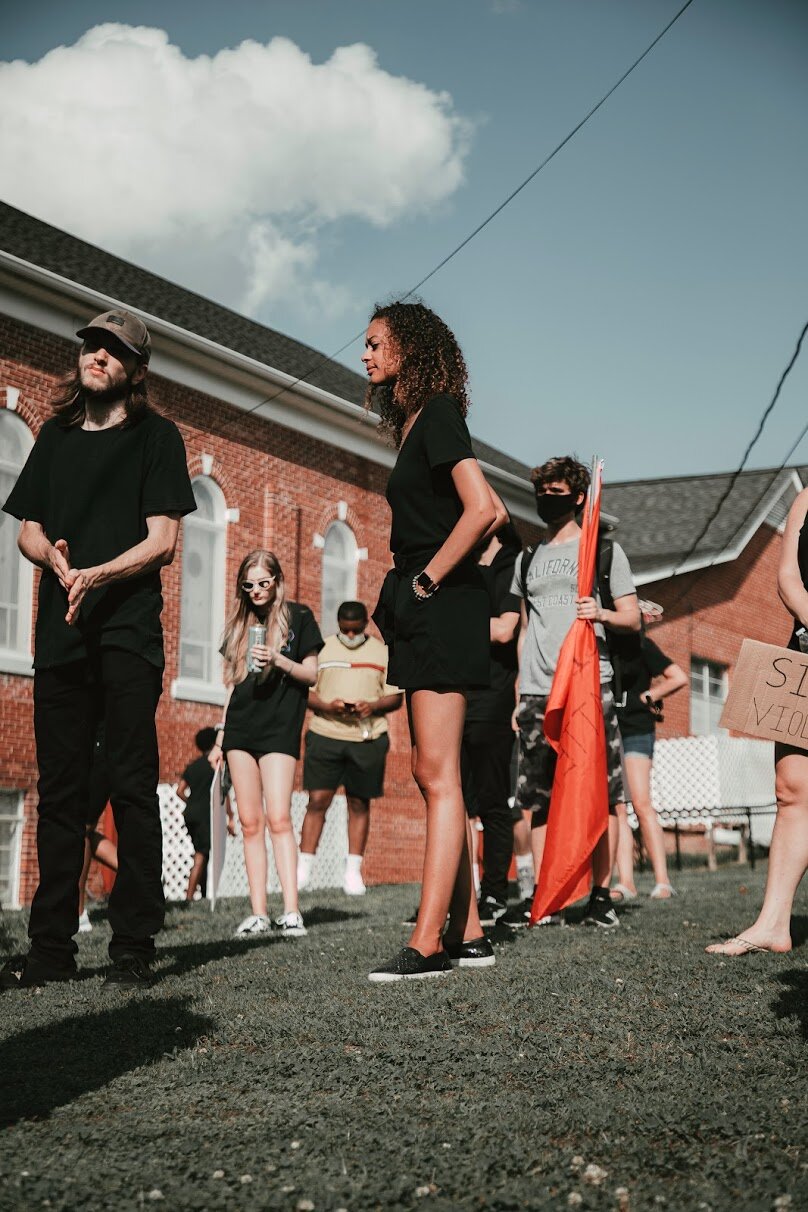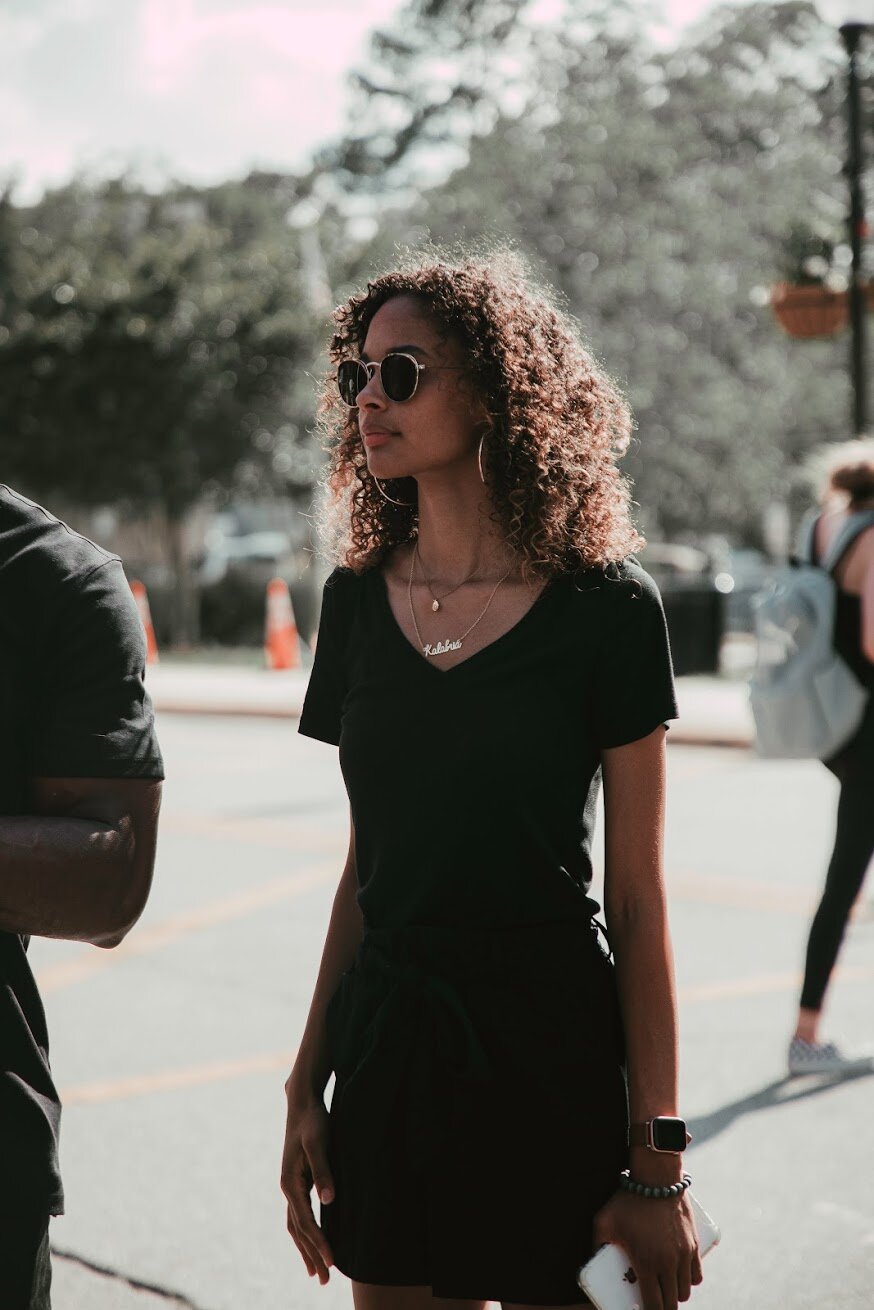Change in North Carolina: A Role Model With Many Titles
Kalabria Gilbert, the daughter of Mayor Jacques Gilbert, is a true powerhouse when it comes to using her platform to inspire others and make positive changes in the Apex Community. She loves the town of Apex and devotes a ton of her time time giving back to the community.
“It's all I have ever known,” Kalabria says. “It's where I was born and raised. My dad was born and raised here as well, [but] I didn't appreciate it until I went away for college. The community is such a great place for family and it's grown so much, but you always feel so close-knit and the small-town charm when you return. I love that it has become a melting pot of all different types of people from many different places.”
Aside from being an Apex native, Kalabria takes on various roles. She works as a fashion model represented by Directions USA; an Events & Communications Coordinator for the Apex Chamber of Commerce; a Private Communications Coordinator for Mayor Gilbert; and other free-lance communications/marketing jobs. Each of these positions are part-time and while this can be difficult for a 24-year-old to manage, Kalabria does so with such grace and inspiration.
Kalabria’s multiple jobs, as well as her life in general, can cause her to become overwhelmed, especially during this tough time in our country.
“I am very busy most days so when I become overwhelmed, I go outside, listen to worship music, paint/craft, play with my Goldendoodle, or even just binge Netflix,” she says. “I think there is not enough emphasis on taking the time to rest in a world where we are constantly moving, connecting, and working.”
It is important to take a break from social media since there is a constant circulation of information, questions, and hard topics being discussed. Mental health is key.
Through her various jobs, Kalabria is skilled in many areas such as modeling, marketing, communications, and politics.
“Since I have become familiar with the governmental procedures, I get to have a behind the scenes understanding of how things work,” she explains. “Therefore, I can advocate and explain to others how they can do their part to get the change they want to see. I also have been able to challenge people to read and see things that make them uncomfortable regarding injustices.”
Kalabria, like her father, faced challenges being a person of color.
“Being biracial, I think the biggest issue was feeling like you were in the middle,” she says. “People would define me as being more of one race than the other. I had teachers that would treat me and my friends of color differently than other students. I received the N-word in derogatory manners many times.”
Source: Instagram
Growing up, Kalabria also often felt as though she had to hide her true self to fit in with other girls in school.
“There was such an emphasis for my hair to be straight,” she says. “People would say ‘you're prettier with your hair straight.’ That caused me to straighten my naturally curly hair for 4+ years, and I always wanted my hair straight when I was younger. Just something that small made me feel like my natural beauty that came from my black side ‘wasn't pretty.’ Then the natural movement hit when I hit college, and I think something even as small as liberating women of color with their natural hair sparked something great.”
“Being a biracial woman, I kind of get a mix of stereotypes and comments such as ‘______ people are racist too; you're both races so you should be able to see that’ or ‘in my opinion, I don't think that's about race’ or ‘since you are both races, you can, and you should agree with all sides,’” she continues. “At the end of the day, I am a black woman but despite how you classify me, there is only one side to see and one opinion to have. However, if people say these things to me, it is a great window of opportunity to inform them and encourage them to hear the emotions and concerns of my brothers and sisters.”
Kalabria uses her experiences of feeling torn between two groups as a way to unite different races together through compassion and strong leadership.
“Since I am biracial and my father was a police officer for 29 years, I have a unique position to be able to speak on the fact that there needs to be change,” she explains. “I hope to continue to use my voice and my knowledge to empower others and work alongside them to use their voice and get the change we need to see.”
Follow @blacklivesmatterapex
Kalabria not only utilizes her experiences to speak out about changes that need to occur, but she also uses her social platforms and connections with community leaders to begin systemic change within the Apex community. She has recruited young people within the community to put together ideas and suggestions for change that will be presented at town hall meetings. Many people do not know they have a voice in their community, and Kalabria has helped create positive change within Apex by using her platform to speak out, as well as providing people a platform to make demands for change.


